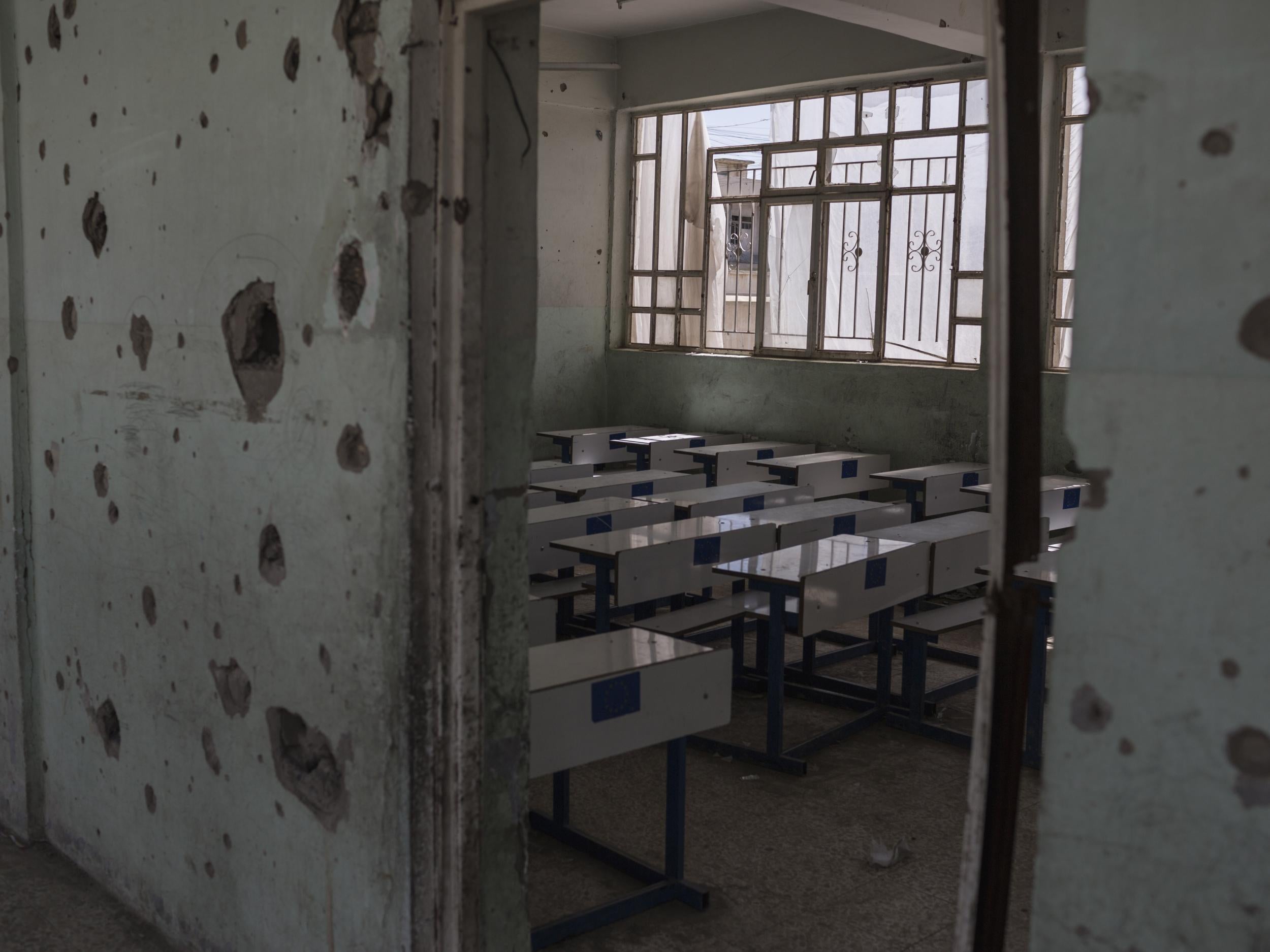I was lucky I escaped Iraq when I did – to be disabled there is to live a nightmare
Draining bureaucracy, expensive healthcare, widespread corruption and a public transport infrastructure ravaged by war, to survive as a non-able bodied in the Middle East state is a struggle


Your support helps us to tell the story
From reproductive rights to climate change to Big Tech, The Independent is on the ground when the story is developing. Whether it's investigating the financials of Elon Musk's pro-Trump PAC or producing our latest documentary, 'The A Word', which shines a light on the American women fighting for reproductive rights, we know how important it is to parse out the facts from the messaging.
At such a critical moment in US history, we need reporters on the ground. Your donation allows us to keep sending journalists to speak to both sides of the story.
The Independent is trusted by Americans across the entire political spectrum. And unlike many other quality news outlets, we choose not to lock Americans out of our reporting and analysis with paywalls. We believe quality journalism should be available to everyone, paid for by those who can afford it.
Your support makes all the difference.I was born in Mosul, Iraq, where I lived for the first ten years of my life a happy child. Although I knew I was different, it didn't matter to me greatly. Disability was something that no one talked about openly, although judgemental looks and insensitive comments were a daily occurrence. Throughout my childhood I did not see a single disabled child; whether it’s because people hid their disabled children from view or some other reason is not clear. I left Iraq and moved to the UK a year before the end of the Iran war, and before life became extremely difficult for all Iraqis, especially those with a disability.
Years of wars, economic sanctions and corruption have dominated life in Iraq and contributed greatly to the fact that the disabled community is simply not a priority for the government. Poverty rates in Iraq are on the rise, affecting 35 per cent of the population according to the ministry of planning, meaning many are unable to afford education or healthcare.
Official statistics indicate that there are more than 1.3 million disabled people in Iraq (3 per cent of the population); campaigners however believe the real number is three times that. Although Iraq is party to the UN Convention on the Rights of Persons with Disabilities, media activist Ali Adil says: “In Iraq, many persons with disabilities continue to suffer from marginalisation and lack of access to their basic rights, in addition to community discrimination.”
On paper, every disabled person in Iraq is in receipt of a financial allowance regardless of whether the person is in employment or not – this amounts to approximately £66 a month. The stipend depends on the assessed severity of the person’s disability and to qualify Iraqis have to go through various consultations and medical examinations. As one activist who works with the British Council in Iraq informed me, “This long and bureaucratic system is almost 'disabling' the disabled person.”
Specialist care and services are either inaccessible or non-existent. Families often choose to home school their children in an effort not to send them to mainstream schools which are ill equipped to provide support or tackle discrimination.
Accessing healthcare has also become out of reach for many who cannot afford to pay. Rahma, a four year old girl, has phenylketonuria (PKU) a genetic condition that can lead to a build-up of the amino acid phenylalanine, which untreated can lead to brain damage and seizures. A protein-limited diet and supplements can prevent serious build ups, but these are not available in Iraq; her mother has to order it from abroad costing her more than £400 per month.
Rahma was rejected by state schools and although her mother enrolled her at a private special needs school costing her £150 a month, she soon found out that her daughter was not cared for or given the dietary requirements of her condition.
Mosul used to have a centre for people with autism and Down’s syndrome, but the government stopped subsiding it when Isis entered the city. Gradually the school was destroyed by the military action, leaving many children stuck at home with no formal education. Most Iraqi cities do not have specialist schools and where there are there is often the ultra-conservative element in some parts of the country; music classes are denied at some schools for children with Down's Syndrome, while, in more religious cities, girls with severe learning disabilities are forced to dress, from head to toe, in Islamic garb and cover their heads, in the belief that this way they are protected from onlookers or even sexual harassment.
There are school projects funded by the UK and EU, but these are not well monitored and resources can be diverted to others who would pocket it. A human rights activist in Mosul who asked not to be named told me how she approached local businesses to fund a special needs school as the city has no suitable options but was faced with questions such as “Will I gain any profit?” Several activists told me of charities that supposedly represent the disabled community but instead use personal connections to high profile figures in the government to get funding from international agencies, using the money for their own purposes. I asked why such figures are not reported: “People live in fear because these individuals are a mafia, plus they provide fake invoices to support their funding claims and exploit disabled individuals [living in poverty] who can be bribed with a ten dollar note to verify that this charity is serving them.”
Five per cent of government jobs have been set aside for the disabled but there is little to no enforcement of this rule, leaving it subject to abuse or to being simply ignored. Lobna who asked for her identity not to be revealed was born with polio and after graduating from the university of fine arts began work as a school teacher where she encounters daily verbal abuse. One one occasion the headmaster said to her “your like shouldn’t be teachers. Our education system is as bad as it is and now we have disabled teachers.”
Even if someone with a disability was able to get a job in government, making their way to their new place of employment could be a hurdle they were unable to climb. Years of war and lack of investment in infrastructure has meant government institutions and public transport vehicles are inaccessible to those with mobility issues.
Changing this isn’t going to be easy. According to Transparency International, Iraq is the 12th most corrupt country in the world. Just this week the former trade minister and two other high-ranking officials were handed jail terms for embezzling £11.2m of public money.
Yet amongst this desperate situation there is hope that can be built upon. The British Council and other international organisations must reach out to young and disabled activists, and the funding given must be better monitored and regularly inspected. There are many disabled Iraqis eager to change things for their own community; they only lack training and the chance to lead.
Join our commenting forum
Join thought-provoking conversations, follow other Independent readers and see their replies
Comments